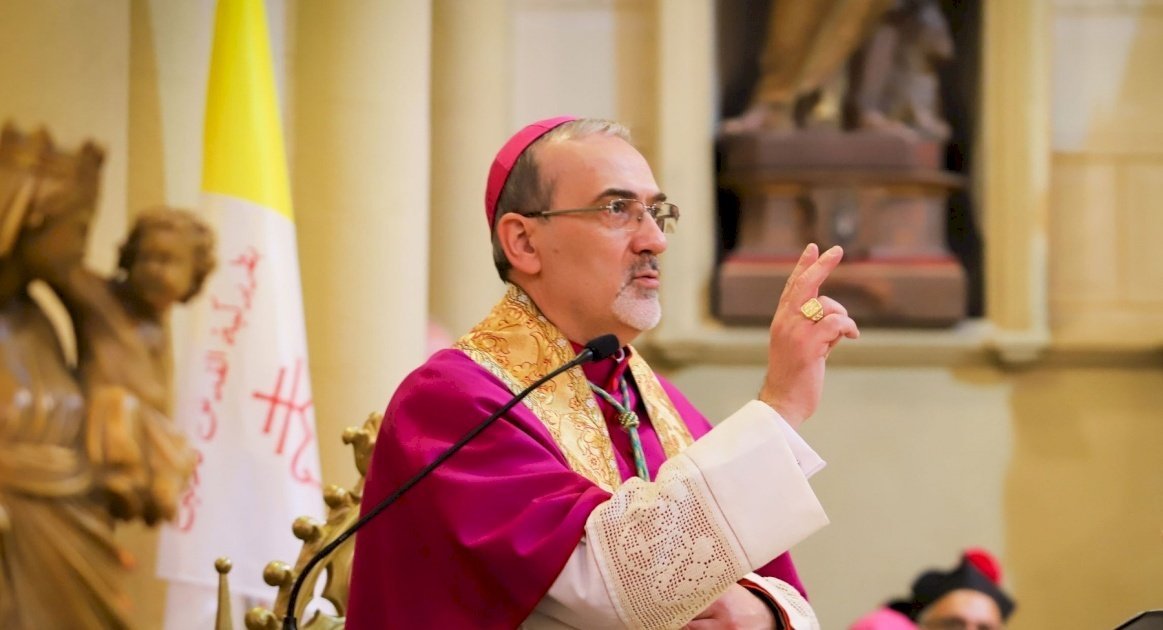Meditation Of His Beatitude Patriarch Cardinal Pierbattista Pizzaballa: Sixth Sunday In Ordinary Time B
Below you can find the Meditation of His Beatitude Patriarch Cardinal Pierbattista Pizzaballa, Latin Patriarch of Jerusalem, for the Sixth Sunday In Ordinary Time B, Sunday 11 February 2024.
(Mk 1: 40-45)
In last Sunday's Gospel reading, we witnessed the healing of Simon's mother-in-law. Once healed of her fever, she goes to serve her guests. Hence, bringing to completion the work of healing and salvation that Jesus had begun in her (Mk 1:31): the ripe fruit of the encounter with the Lord is not a return to her former life, but a new beginning, to be precise, it's a conversion (cf. Mk 1:15), to be granted new life through salvation.
We can draw a parallel with the events in today's Gospel (Mk 1:40-45): Jesus heals again, this time, a man stricken with leprosy, and asks Jesus for a new beginning, which is granted to him through the order to go to the priest and offer what the Law prescribed to attest to the healing.
This might sound like something very different from what happened to Peter's mother-in-law.
In fact, it is not.
The man, sick with leprosy, was a man excluded from worship, relationships, and the life of the people of [Israel]. From the Law, he had to observe only the rules that decreed his exclusion.
Therefore, Jesus sends him back into the life of the people, which comes through the Law. Because a free man, a saved man, is a man who keeps the Law, and who is responsible, like his brothers, for the good of all. The Law, for [Israel], is the way of life, is the acceptance of the covenant as the foundation of one's existence.
And the healed leper is invited to take responsibility for the covenant with God.
For this man, the purpose of his healing is to re-enter as a responsible adult back into society and life.
We said that the lepers were outcasts, ghettoized: they wanted, therefore, to live the fullness of their faith life, but they could not.
After all, this is what the leper says to Jesus, "If you will, you can" (Mk. 1:40), acknowledging to him a freedom that he knows he does not have.
He would like to, but he cannot.
However, the interesting thing is that in healing him, Jesus does not stop there. He does not simply give him a chance back in life, which he was denied, or a freedom that he had lost.
By sending him back to fulfill the requirements of the Law, he adds a step that leads to the culmination of a saved life.
It is the step of duty, responsibility, and obedience, as the highest form of love.
Then, not only, "If you will, you may." But also, "If you will, if you now can, then you must."
If Simon's mother-in-law wants to put her life at the service of her guests; Once she is healed, she can do so, then she must.
So it is first of all for Jesus, who first obeys the will of the Father, the will that wants every man saved.
And so it is for every healed, for every saved, because salvation is first and foremost a demanding responsibility, one that commits your life to making every possibility a duty…
This Meditation was originally publsihed on the website of the Latin Patriarchate of Jerusalem. Please click here to read the full text.


